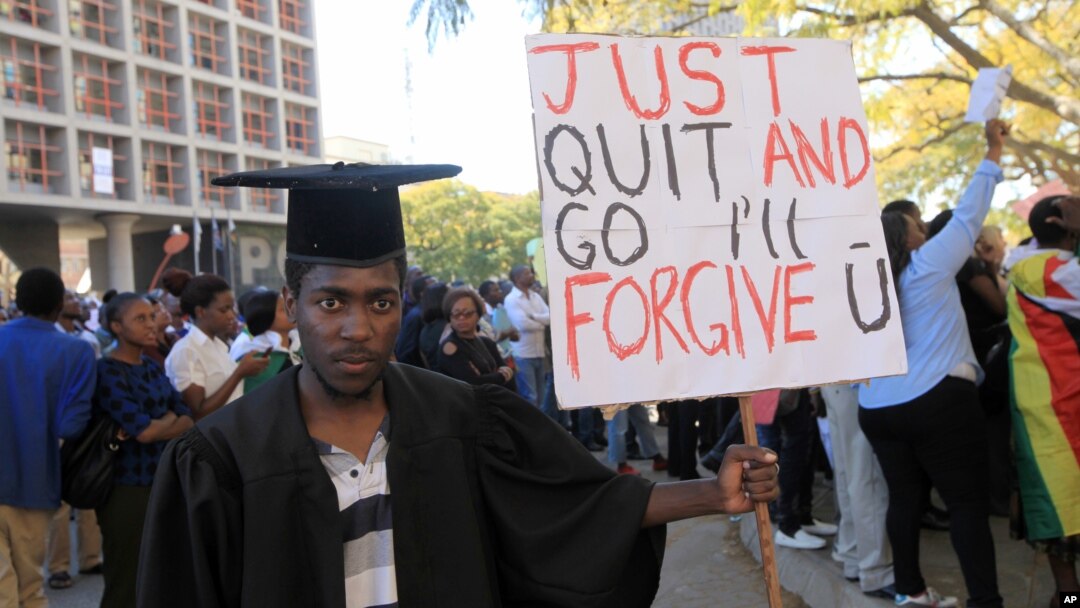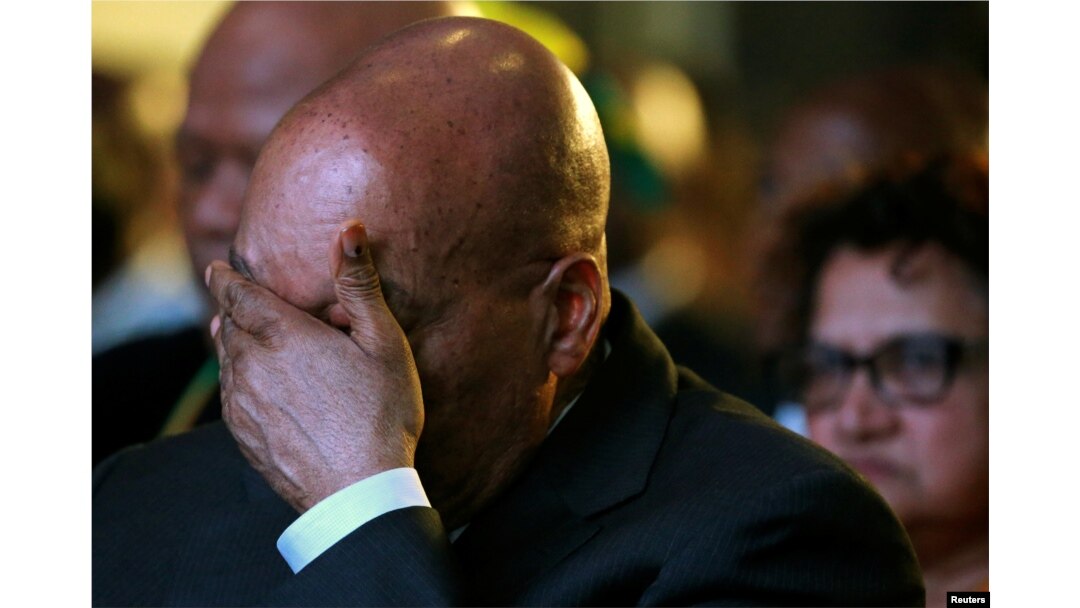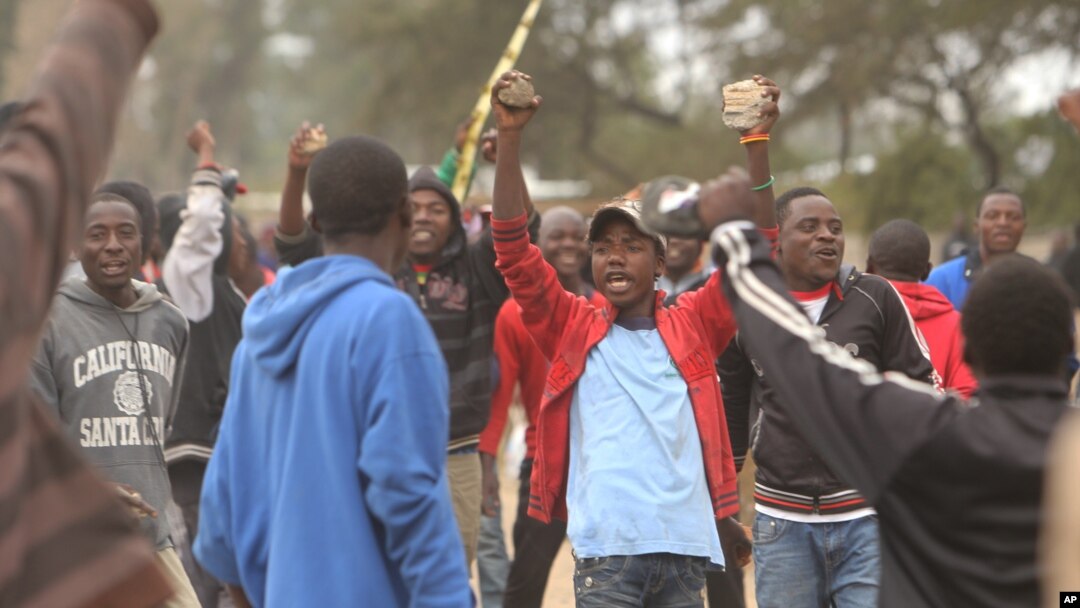It is a familiar tale in Southern Africa: The revered liberation-movement-turned-ruling-party, led by struggle-heroes of decades past, is facing increasing criticism and challenges over enduring poverty, unemployment and alleged corruption.
In Zimbabwe, the venerable ZANU-PF, hailed for fighting British rule more than three decades ago, is the target of unprecedented protests. Demonstrations are led by war veterans who say 92-year-old President Robert Mugabe, the only leader independent Zimbabwe has ever had, is a dictator.

FILE - A jobless university graduate protests while holding a banner with a message directed at Zimbabwean President Robert Mugabe during protests in Harare, Aug. 3, 2016.
A similar tale resounds in Angola, where the People's Movement for the Liberation of Angola has run the country since 1975. Government forces have cracked down on dissenters, rights groups say, and last week shot dead a teenage boy at a peaceful protest in the capital.
The Mozambique Liberation Front, FRELIMO, is still struggling to find peace with its opposition — more than two decades after the end of the civil war.
In South Africa, the African National Congress last week suffered an election victory that many onlookers framed as an embarrassing defeat. The ANC won the greatest number of seats in the local elections, but it lost an unprecedented amount of support to the opposition. The Democratic Alliance bested the ANC in several major metropolitan areas, which could portend further ANC losses in national polls in 2019.

FILE - South Africa's President Jacob Zuma reacts during the official announcement of the munincipal election results at the result center in Pretoria, South Africa, Aug. 6, 2016.
The reason for the trend is simple, says Alex Vines, the head of the Africa program at London research institution Chatham House. Young voters are growing in number, and many do not remember the pain of colonialism and oppression, but they keenly feel the pain of unemployment and inequality.
"Most of these liberation movements have lost touch with people,” Vines said. “They have been unable to provide jobs and opportunities and spread wealth, and so inequality has grown and a number of party apparatchiks have gotten very rich."
That is the case in Zambia, its former acting president told VOA News on the eve of Thursday's vote. Guy Scott says the ruling Patriotic Front under President Edgar Lungu has been criticized for corruption and mismanagement and blamed for the nation's economic woes. Lungu now faces a major opposition challenge, and with it, the prospect of violence and allegations of rigging.
But analyst Victor Shale says upheaval at the polls is not necessarily a bad thing. Strong opposition can motivate the ruling party to work harder. While that may be painful for the powerful ruling parties, he says, it is ultimately good for democracy.


